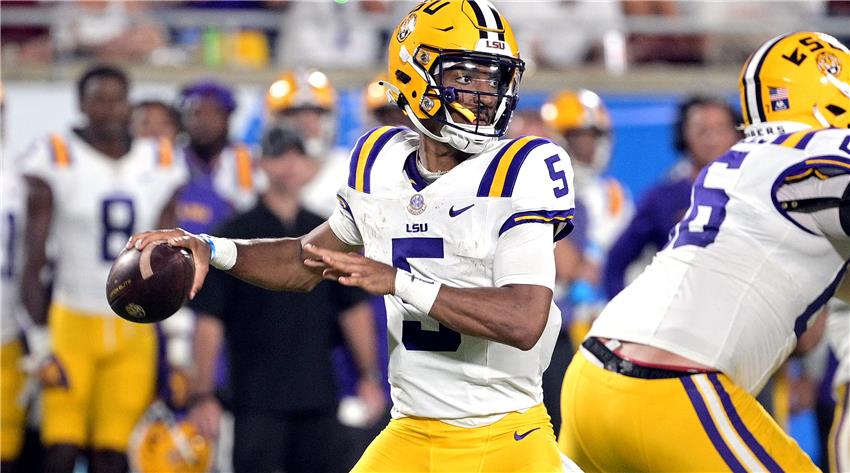
What the NFL Can Learn from Other Pro Sports Leagues
The NFL stands as a dominant force in American sports, boasting unparalleled television ratings and substantial revenue.
However, other professional sports leagues, both domestically and internationally, offer innovative strategies and practices that the NFL can adopt to enhance its operations, fan engagement and global reach. Leagues such as the NBA, MLB and European football organizations have embraced technology, digital content and fan interaction in ways that keep audiences engaged year-round.
These leagues also prioritize global expansion through targeted marketing and international games, areas where the NFL has room to grow. Moreover, many have introduced flexible scheduling, advanced analytics and inclusive policies to improve both the on-field product and the overall fan experience. By studying these examples, the NFL has an opportunity to evolve its brand, attract a younger and more diverse audience and remain competitive in an ever-changing sports entertainment landscape.
Fan Engagement Through Digital Platforms
The NBA’s digital strategy relies heavily on data analytics and user behavior tracking to tailor content and maximize engagement. By analyzing metrics such as watch time, click-through rates, and social sharing patterns, the league fine-tunes its digital offerings to meet audience preferences in real time. Advanced machine learning algorithms power personalized recommendations on streaming platforms like League Pass, ensuring fans receive content most relevant to their interests, whether it’s highlights, full games, or exclusive interviews.
Additionally, integrating real-time stats and augmented reality features into mobile apps enhances viewer immersion, allowing fans to interact with live data and player performance insights during games. These technologies not only boost fan satisfaction but also provide valuable data for targeted advertising and sponsorships, creating new revenue channels while enriching the overall fan experience.
Beyond technical innovation, the NBA has expanded its global fan base by embracing social media platforms like TikTok and Instagram, offering highlights and behind-the-scenes content that keep fans connected around the clock. The league also collaborates with gaming companies and fantasy sports platforms to create immersive experiences, deepening fan involvement through interactive engagement.
Similarly, the rise of sports betting in the NFL has spurred the growth of online engagement and entertainment platforms like norskcasino.io, reflecting the increasing demand for interactive digital experiences, particularly among younger audiences. This is a key demographic that the NFL is eager to capture. In Europe, sports betting and online casinos have significantly contributed to the digital rise of football leagues like La Liga and the EPL, where fans actively engage through live betting, fantasy sports and casino-style games themed around their favorite teams and players.
Features like live sports betting, football-themed casino games, and real-time stats integration keep fans engaged beyond traditional viewing. By adopting comparable strategies such as enhanced mobile apps, virtual reality experiences, and partnerships with online gaming platforms, the NFL can boost fan engagement and maintain its competitive edge in the evolving entertainment landscape. These innovations will help the league appeal to fans and open new opportunities for interaction both inside and outside the stadium.
Increasing International Presence
Major League Baseball (MLB) and the NBA have made significant strides in globalizing their sports. Through international games, partnerships and localized content, these leagues have cultivated substantial international fan bases. The NBA, for instance, hosts regular-season games in countries like China and Mexico, and its players often participate in global marketing campaigns that resonate with diverse audiences.
MLB has invested in grassroots baseball programs across Asia and Latin America, helping to develop young talent and grow interest in the sport worldwide. The NFL has initiated efforts in this direction, such as hosting games in London and Mexico City. However, to match the global presence of its counterparts, the NFL can expand its international initiatives, including youth programs, localized content, and strategic partnerships, to develop a more robust global following.
For example, establishing NFL academies or training camps in key international markets could nurture future players and fans alike. Additionally, creating broadcasts tailored to different languages and cultures would make the sport more accessible globally. Partnering with international sports networks and digital platforms can also increase exposure and engagement in untapped regions, helping the NFL build a truly global brand.
Technically, the NBA leverages advanced data analytics to tailor content for different regions, analyzing viewer preferences and engagement metrics to optimize marketing campaigns and broadcast schedules. Their use of geo-targeted digital advertising and social media localization allows them to deliver culturally relevant content that enhances fan loyalty abroad. MLB utilizes satellite and streaming technology to deliver high-definition broadcasts in multiple languages, ensuring accessibility across diverse markets with varying bandwidth capabilities.
Both leagues employ sophisticated CRM (Customer Relationship Management) systems integrated with AI to personalize fan interactions and offers based on regional behaviors. By adopting similar data-driven localization strategies and investing in scalable broadcast infrastructure, the NFL can efficiently scale its global outreach while maintaining high-quality fan experiences.
Flexible Revenue Sharing Models
The NFL's revenue-sharing model promotes financial parity among teams, contributing to competitive balance. In contrast, the NBA allows teams to retain more localized revenue, leading to financial disparities but also incentivizing teams to innovate and invest in their markets. By exploring a hybrid revenue-sharing model, the NFL can maintain competitive balance while encouraging teams to develop localized revenue streams. This approach can stimulate market-specific growth and fan engagement.
For example, NBA teams like the Los Angeles Lakers and New York Knicks generate significant income from local TV deals and sponsorships, which they reinvest in marketing and player development. Allowing NFL teams to keep a larger share of such localized revenues could encourage franchises in bigger markets to innovate with unique fan experiences, stadium upgrades, and community programs.
Meanwhile, smaller-market NFL teams would still benefit from the league’s core revenue sharing, ensuring they remain competitive on the field. This balance can also open opportunities for teams to partner with local businesses and digital platforms, such as sports betting companies and online casinos, creating tailored promotions that boost fan interaction. By adopting such a flexible model, the NFL could foster both league-wide stability and vibrant, market-driven growth.
Implementing a hybrid revenue-sharing system requires robust financial analytics and transparent reporting tools to monitor local and shared revenues in real time. Advanced data platforms can analyze market performance, ticket sales and digital engagement metrics, helping the league adjust sharing ratios dynamically based on economic conditions.
Smart contract technologies using blockchain could facilitate automated and secure revenue distributions, reducing administrative overhead and increasing trust among franchises. Furthermore, integrating fan engagement data such as sports betting activity and online casino participation into revenue models could help identify lucrative market opportunities and optimize promotional strategies. These technological capabilities enable a flexible yet fair system that balances financial equality with incentives for innovation and localized growth.
Transparent Disciplinary Measures
The NHL has set a precedent in maintaining transparency regarding player discipline. Through detailed video explanations and public disclosures, the league ensures that fans and players understand the rationale behind disciplinary actions. This approach fosters trust and clarity. The NFL can adopt similar practices to address criticisms about inconsistent disciplinary decisions. By providing clear explanations and maintaining transparency, the league can enhance its credibility and uphold the integrity of the game.
For example, the NHL’s use of in-depth videos explaining suspensions or fines allows fans to see exactly what rules were broken and why a certain penalty was applied. This level of openness reduces speculation and controversy, helping fans accept the outcomes even when they disagree. The NFL could implement a similar system, offering post-game disciplinary summaries or video breakdowns accessible to the public.
Additionally, regularly updating fans on ongoing investigations or appeals would demonstrate accountability and fairness. Such transparency would not only improve fan trust but also encourage players and teams to adhere more strictly to league rules, ultimately benefiting the sport’s reputation.
Final Thoughts
While the NFL has achieved remarkable success, there is always room for growth and improvement. By learning from the innovative practices of other professional sports leagues, the NFL can enhance its operations, expand its global reach and provide an even more engaging experience for fans worldwide. For example, adopting the NBA’s effective use of social media and digital content could help the NFL connect with younger, tech-savvy audiences.
Expanding international games and youth development programs, similar to Major League Baseball’s efforts in Latin America and Asia, would grow the NFL’s fan base beyond the U.S. Additionally, increasing transparency in disciplinary actions like the NHL has done could improve public trust and the league’s reputation.
Finally, integrating online sports betting and interactive casino experiences can offer fans new ways to engage with the game, keeping them connected both inside and outside the stadium.
